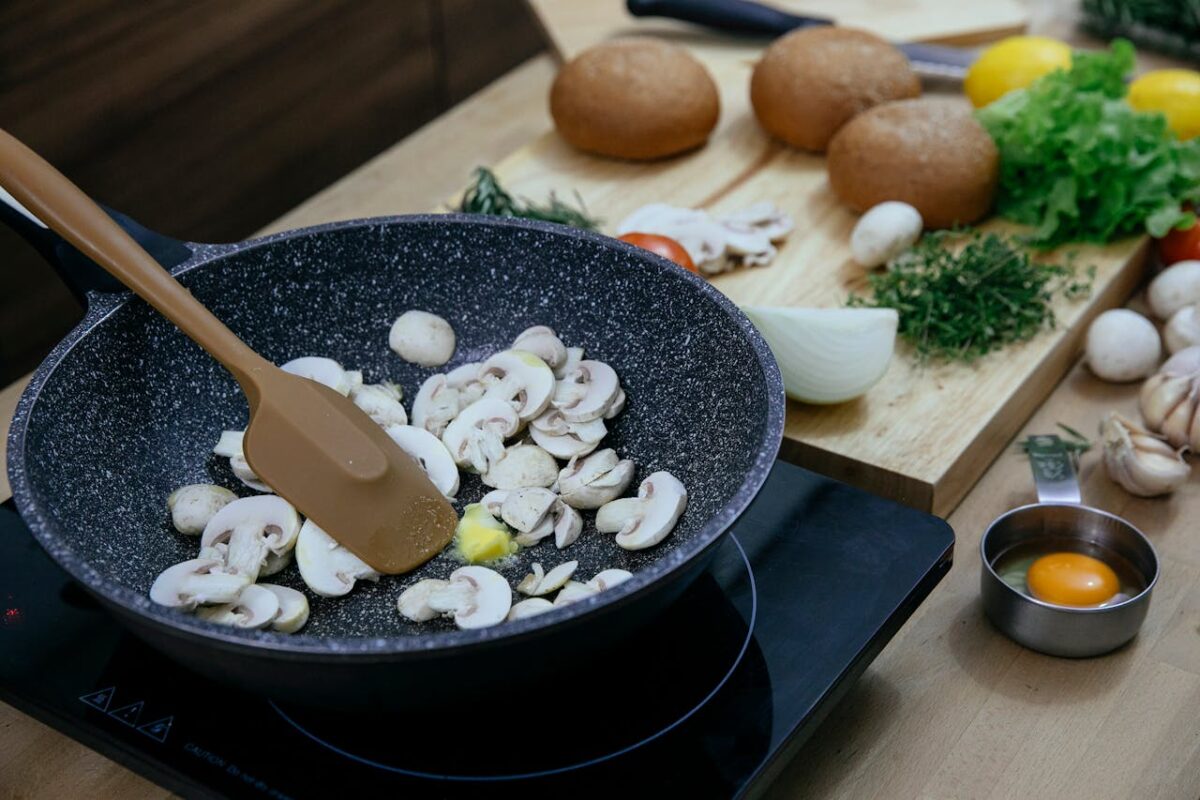Being a medical student often means juggling endless study hours, tight budgets, and the need to maintain a healthy lifestyle. It can be challenging to find the time and money to prepare nutritious meals, but it’s not impossible. With a little planning and creativity, you can enjoy delicious and healthy recipes without breaking the bank. Here are some tips and recipes to help you cook on a budget and stay healthy.
Why Cooking at Home Matters
Cooking at home has numerous benefits, especially for medical students. It’s often cheaper than eating out, allows you to control the ingredients and portion sizes, and can be a great way to relax and unwind after a long day of studying. According to the American Heart Association, cooking at home can significantly improve your diet by reducing the intake of processed foods, which are often high in unhealthy fats, sugars, and sodium.
Budget-Friendly Cooking Tips
- Plan Your Meals: Take some time each week to plan your meals. This helps you avoid last-minute takeout and ensures you’re eating balanced, nutritious meals.
- Buy in Bulk: Items like grains, beans, and frozen vegetables are often cheaper when bought in bulk. They also have a long shelf life, making them perfect for budget-friendly cooking.
- Use Seasonal Produce: Seasonal fruits and vegetables are usually less expensive and more nutritious than out-of-season produce.
- Cook in Batches: Prepare large batches of meals and freeze portions for later. This saves time and money, and it’s perfect for those busy study days.
- Embrace Meatless Meals: Incorporating more plant-based meals can save you money and improve your health. Beans, lentils, and tofu are great protein-rich alternatives to meat.
Balancing Study and Nutrition

Utilizing resources like online tutoring services can free up some of your time, allowing you to focus on preparing healthy meals. For instance, Ace Med Boards offers tutoring services specifically designed for medical students, helping you efficiently prepare for shelf exams and other critical tests. By optimizing your study time with professional help, you can carve out moments in your schedule to focus on nutrition.
Investing time in cooking not only supports your physical health but also your mental well-being. Preparing meals can serve as a much-needed break from the intense mental effort required for medical studies. Cooking can be a therapeutic activity, providing a sense of accomplishment and control that can be particularly grounding during stressful periods.
Moreover, incorporating effective study habits can reduce stress and make more time for cooking. By following such tips, you can create a balanced schedule that accommodates both your academic responsibilities and your dietary needs.
Healthy Budget-Friendly Recipes
1. Vegetable Stir-Fry with Brown Rice
Ingredients:
- 1 cup brown rice
- 2 tablespoons olive oil
- 1 onion, chopped
- 2 cloves garlic, minced
- 1 bell pepper, sliced
- 1 cup broccoli florets
- 1 cup sliced carrots
- 2 tablespoons soy sauce
- 1 teaspoon sesame oil (optional)
- Salt and pepper to taste
Instructions:
- Cook the brown rice according to the package instructions.
- In a large pan, heat the olive oil over medium heat. Add the onion and garlic and sauté until fragrant.
- Add the bell pepper, broccoli, and carrots to the pan. Stir-fry for about 5-7 minutes, or until the vegetables are tender.
- Stir in the soy sauce and sesame oil. Season with salt and pepper to taste.
- Serve the stir-fry over a bed of brown rice.
Cost Per Serving: Approximately $2.50
2. Lentil Soup
Ingredients:
- 1 cup lentils, rinsed and drained
- 1 tablespoon olive oil
- 1 onion, chopped
- 2 cloves garlic, minced
- 2 carrots, chopped
- 2 celery stalks, chopped
- 1 can diced tomatoes
- 4 cups vegetable broth
- 1 teaspoon cumin
- 1 teaspoon paprika
- Salt and pepper to taste
- Fresh parsley for garnish (optional)
Instructions:
- In a large pot, heat the olive oil over medium heat. Add the onion and garlic and sauté until fragrant.
- Add the carrots and celery and cook for about 5 minutes, or until they start to soften.
- Stir in the lentils, diced tomatoes, vegetable broth, cumin, and paprika. Bring to a boil, then reduce the heat and let simmer for about 30 minutes, or until the lentils are tender.
- Season with salt and pepper to taste.
- Serve the soup hot, garnished with fresh parsley if desired.
Cost Per Serving: Approximately $1.80
Smart Shopping for Healthy Ingredients
Shopping smart is crucial when cooking on a budget. A study by the USDA found that it is possible to eat healthily on a budget by choosing nutrient-dense foods and avoiding processed items. Here are some tips to help you get the most bang for your buck:
- Shop Sales and Use Coupons: Keep an eye out for sales on healthy staples and use coupons to save even more.
- Buy Store Brands: Store brands are often just as good as name brands and much cheaper.
- Avoid Pre-Packaged Foods: Pre-packaged and convenience foods are often more expensive and less healthy than whole foods.
Conclusion
Cooking on a budget doesn’t mean sacrificing taste or nutrition. With a bit of planning and creativity, you can prepare delicious and healthy meals that won’t break the bank. Remember, the key is to plan your meals, buy in bulk, use seasonal produce, cook in batches, and embrace meatless meals. These strategies will help you save money and maintain a healthy diet, even during the busiest times in medical school.
By incorporating these tips into your routine, you’ll not only save money but also ensure that you’re fueling your body with the nutrients it needs to tackle the demands of medical school. Happy cooking!
Want to unlock greater wellness?
Listen to our friends over at the Wellness + Wisdom Podcast to unlock your best self with Drew Canole of Organifi:








 Declining Health – 6 Signs You Must Not Ignore
Declining Health – 6 Signs You Must Not Ignore